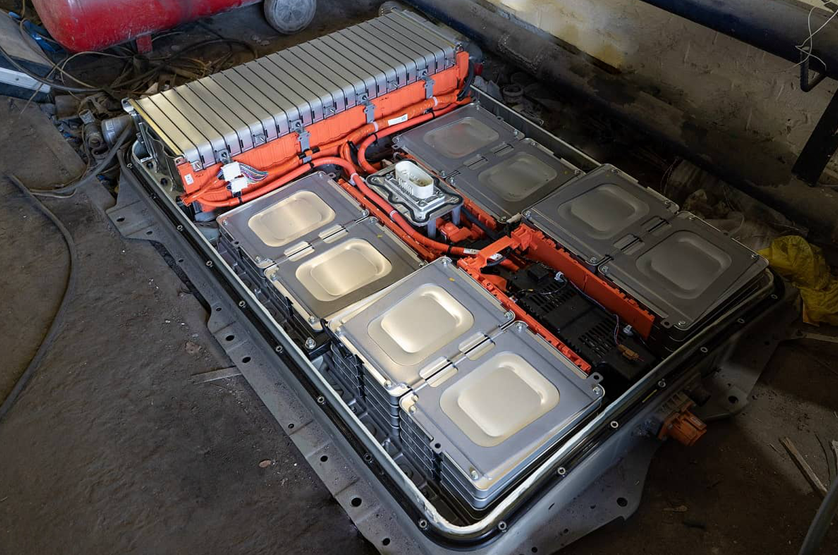Understanding the Basics of an RV Battery
RV batteries play a crucial role in providing power to various electrical systems and appliances in recreational vehicles. Whether you are a seasoned RV enthusiast or a beginner, it is important to have a good understanding of RV batteries and how they work. In this article, we will explore the basics of an RV battery, including types, maintenance, and charging.
Types of RV Batteries
There are several types of batteries commonly used in RVs, each with its own characteristics and advantages. The most common types include flooded lead-acid, AGM (absorbed glass mat), and lithium-ion batteries.
Flooded lead-acid batteries are the most affordable option and are commonly found in older RVs. They require regular maintenance, including checking and adding distilled water to the cells. AGM batteries are maintenance-free and provide better performance, making them a popular choice for many RV owners. Lastly, lithium-ion batteries are the newest and most advanced option. They are lightweight, have a longer lifespan, and offer better charging efficiency, but they come with a higher price tag.
Battery Capacity and Amp Hours
Understanding battery capacity is essential for determining how long your RV battery will last. Battery capacity is measured in amp hours (Ah), which represents the amount of current a battery can provide over a specific period of time. A higher amp hour rating means the battery can provide power for a longer duration.
To calculate how long a battery will last, you need to consider the power consumption of your appliances and the battery\’s capacity. For example, if you have a 100Ah battery and your appliances consume a total of 10 amps per hour, your battery will last approximately 10 hours before needing to be recharged.
Battery Maintenance
Proper maintenance is crucial for maximizing the lifespan and performance of your RV battery. Regularly inspecting the battery for any signs of damage, corrosion, or loose connections is important. Clean the battery terminals and cables with a mixture of baking soda and water to prevent corrosion.
If you have a flooded lead-acid battery, make sure to check the water levels regularly and top them up with distilled water if necessary. AGM and lithium-ion batteries do not require water maintenance but should be stored in a cool and dry place when not in use.
Charging an RV Battery
Charging an RV battery correctly is essential for its longevity and performance. There are three common methods of charging: engine alternator, shore power, and solar panels.
The engine alternator charges the battery while the RV is running. However, this method may not fully charge the battery and can take a long time. Shore power charging involves plugging the RV into an electrical outlet at a campground or RV park. This method provides a consistent and reliable charge.
Solar panels are an increasingly popular option for RV owners. They convert sunlight into electricity to charge the battery. This method is environmentally friendly and allows for off-grid camping.

It is important to note that overcharging or undercharging the battery can lead to reduced performance and a shorter lifespan. Using a smart charger or an inverter charger with built-in charging capabilities can help prevent overcharging and ensure a proper charge.
In conclusion, understanding the basics of an RV battery is essential for any RV owner. Knowing the different types of batteries, their capacities, and how to properly maintain and charge them will help ensure a reliable power supply for all your adventures on the road. Invest in a high-quality battery and follow proper maintenance and charging procedures to prolong its lifespan and maximize its performance.
-
 With the increasing demand for reliable and efficient power solutions, the 3.2V LiFePO4 battery has emerged as a popular choice for various applications. This type of battery provides exceptional performance, long cycle life, and enhanced safety features, making it an ideal choice for use in a wide range of devices and systems. The 3.2V LiFePO4 battery, also known as...En savoir plus
With the increasing demand for reliable and efficient power solutions, the 3.2V LiFePO4 battery has emerged as a popular choice for various applications. This type of battery provides exceptional performance, long cycle life, and enhanced safety features, making it an ideal choice for use in a wide range of devices and systems. The 3.2V LiFePO4 battery, also known as...En savoir plus -
 Low-speed electric vehicles (LSEVs) are compact electric vehicles designed for short-distance travel at relatively low speeds. They are typically used in urban environments, industrial areas, and campuses for transportation purposes. LSEVs are known for their small size, low cost, and eco-friendly operation. Lithium batteries are commonly used in low-speed electric vehicles due to their high energy density, lightweight nature, and...En savoir plus
Low-speed electric vehicles (LSEVs) are compact electric vehicles designed for short-distance travel at relatively low speeds. They are typically used in urban environments, industrial areas, and campuses for transportation purposes. LSEVs are known for their small size, low cost, and eco-friendly operation. Lithium batteries are commonly used in low-speed electric vehicles due to their high energy density, lightweight nature, and...En savoir plus -
 In today's rapidly evolving world, technological advancements have infiltrated almost every aspect of our lives, and the warehousing industry is no exception. The introduction of intelligent lithium battery-powered warehouse logistics trucks has revolutionized the way warehouses operate, offering numerous benefits in terms of efficiency, sustainability, and cost-effectiveness. One of the key advantages of intelligent lithium battery-powered warehouse logistics trucks...En savoir plus
In today's rapidly evolving world, technological advancements have infiltrated almost every aspect of our lives, and the warehousing industry is no exception. The introduction of intelligent lithium battery-powered warehouse logistics trucks has revolutionized the way warehouses operate, offering numerous benefits in terms of efficiency, sustainability, and cost-effectiveness. One of the key advantages of intelligent lithium battery-powered warehouse logistics trucks...En savoir plus -
 When it comes to boating, having a reliable and efficient power source is essential. A cranking battery is designed specifically for this purpose, providing the necessary power to start your boat\'s engine. In this article, we will explore the features and benefits of a cranking battery, as well as provide tips on how to choose the right one for your...En savoir plus
When it comes to boating, having a reliable and efficient power source is essential. A cranking battery is designed specifically for this purpose, providing the necessary power to start your boat\'s engine. In this article, we will explore the features and benefits of a cranking battery, as well as provide tips on how to choose the right one for your...En savoir plus -
 LiFePO4 batteries, also known as lithium iron phosphate batteries, are a type of rechargeable battery that is becoming increasingly popular due to their many advantages over traditional lead-acid batteries. In this article, we will explore some of the advantages of using LiFePO4 batteries. 1. Longer lifespan One of the most significant advantages of using LiFePO4 batteries is their...En savoir plus
LiFePO4 batteries, also known as lithium iron phosphate batteries, are a type of rechargeable battery that is becoming increasingly popular due to their many advantages over traditional lead-acid batteries. In this article, we will explore some of the advantages of using LiFePO4 batteries. 1. Longer lifespan One of the most significant advantages of using LiFePO4 batteries is their...En savoir plus -
 A reliable car starter battery is an essential component of any vehicle. It is responsible for providing the power needed to start the engine and keep the electrical systems running while on the road. Without a reliable battery, your car won’t be able to start, and you may find yourself stranded on the side of the road. In this...En savoir plus
A reliable car starter battery is an essential component of any vehicle. It is responsible for providing the power needed to start the engine and keep the electrical systems running while on the road. Without a reliable battery, your car won’t be able to start, and you may find yourself stranded on the side of the road. In this...En savoir plus -
 Introduction: In the world of batteries, the demand for long-lasting power is constantly increasing. Whether it\'s in the automotive industry, renewable energy systems, or portable devices, having a reliable and high-capacity battery is crucial. One such battery that has gained immense popularity is the High Capacity 12V LiFePO4 Battery, with a whopping 100Ah capacity. In this article, we will explore...En savoir plus
Introduction: In the world of batteries, the demand for long-lasting power is constantly increasing. Whether it\'s in the automotive industry, renewable energy systems, or portable devices, having a reliable and high-capacity battery is crucial. One such battery that has gained immense popularity is the High Capacity 12V LiFePO4 Battery, with a whopping 100Ah capacity. In this article, we will explore...En savoir plus

